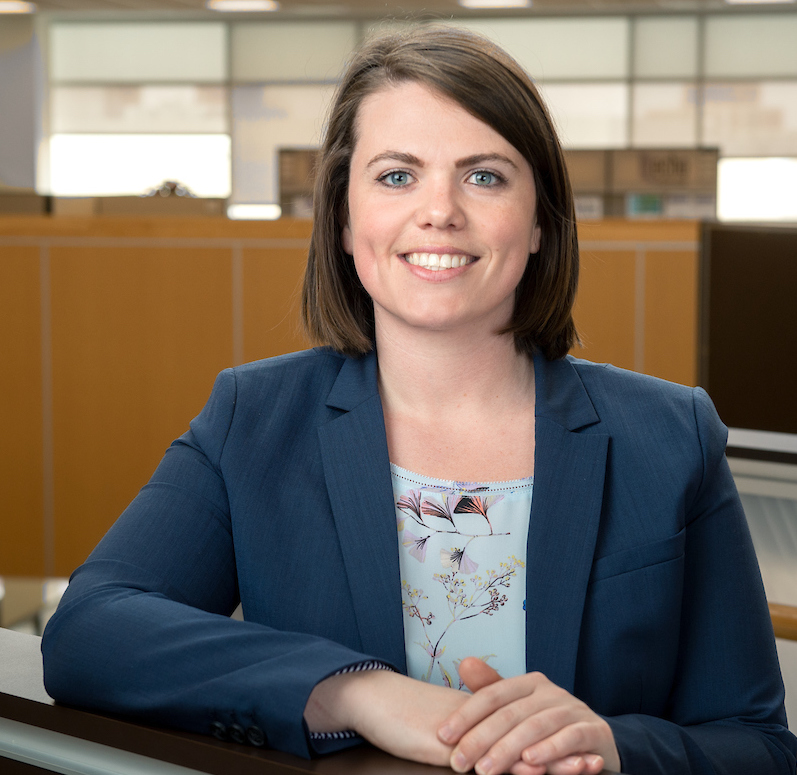Stephanie Chamberlain studies the impacts of loneliness on the health of older adults in continuing care
Sasha Roeder-Mah - 10 November 2022

Stephanie Chamberlain received her PhD in nursing at the University of Alberta in 2019, immediately followed by a postdoctoral fellowship in the Faculty of Medicine & Dentistry’s Department of Family Medicine. But it was many years ago, during a summer job as a care aide, that her interest began in how life in continuing care impacts older adults.
Today, the assistant professor continues to study loneliness and social isolation in older adults, particularly those in the continuing care system, and looks to expand into more longitudinal research in the coming years.
How’d you get into your area of research?
I became interested in older adults and health systems while working as a care aide in long-term care my first summer home from university. I worked in this home for years and then went on to work in a number of different long-term care homes while in school. I loved the residents and the people I worked with, but I was very frustrated with the lack of resources and the limited use of research evidence in the sector. I started working as a research assistant for one of my gerontology professors in undergrad and the rest is history.
What’s the most rewarding aspect of your work?
Working with non-academic community partners is the most rewarding part of my job. I love getting to learn from people who have real-world experiences and trying to formulate a project that encompasses our shared interests. It’s fun to learn together and to get to see the research in practice.
What’s the most challenging aspect of your work?
A lot of the topics I focus on — such as loneliness and other social determinants of health — are not readily available in administrative health data. We have to come up with creative ways to find this information in the data and oftentimes it leads us to supplement our work with other types of data collection, but it isn’t always a perfect fit.
Where do you want your research to be in five years?
I would like to be able to do more longitudinal analysis, examining loneliness over time and its influence on health and health-service use. I am working to include primary care in my research and in five years I want to have been able to work with primary-care practitioners to sort out how to best identify lonely individuals earlier in their health trajectory.
What is something your co-workers do not know about you?
My parents are dairy farmers. In high school, I entered the annual plowmen’s association competition — where after giving a speech about agriculture, plowing a field and doing a panel interview, I won the title “Princess of the Furrow.” My niece and nephew are now the proud owners of my tiara and sash to play dress-up.
Where is your favourite place on campus?
The quad. It’s beautiful in every season and after a few years without many students on campus it is nice to see the hustle and bustle in the middle of north campus again.
Footer: The University of Alberta is the top institution in Canada for nursing and ranked ninth worldwide according to the latest QS World University Rankings by Subject. Our world-leading Faculty lead cutting-edge work that's changing the face of global health. Learn more: https://www.ualberta.ca/nursing/careers/joining-us.html.